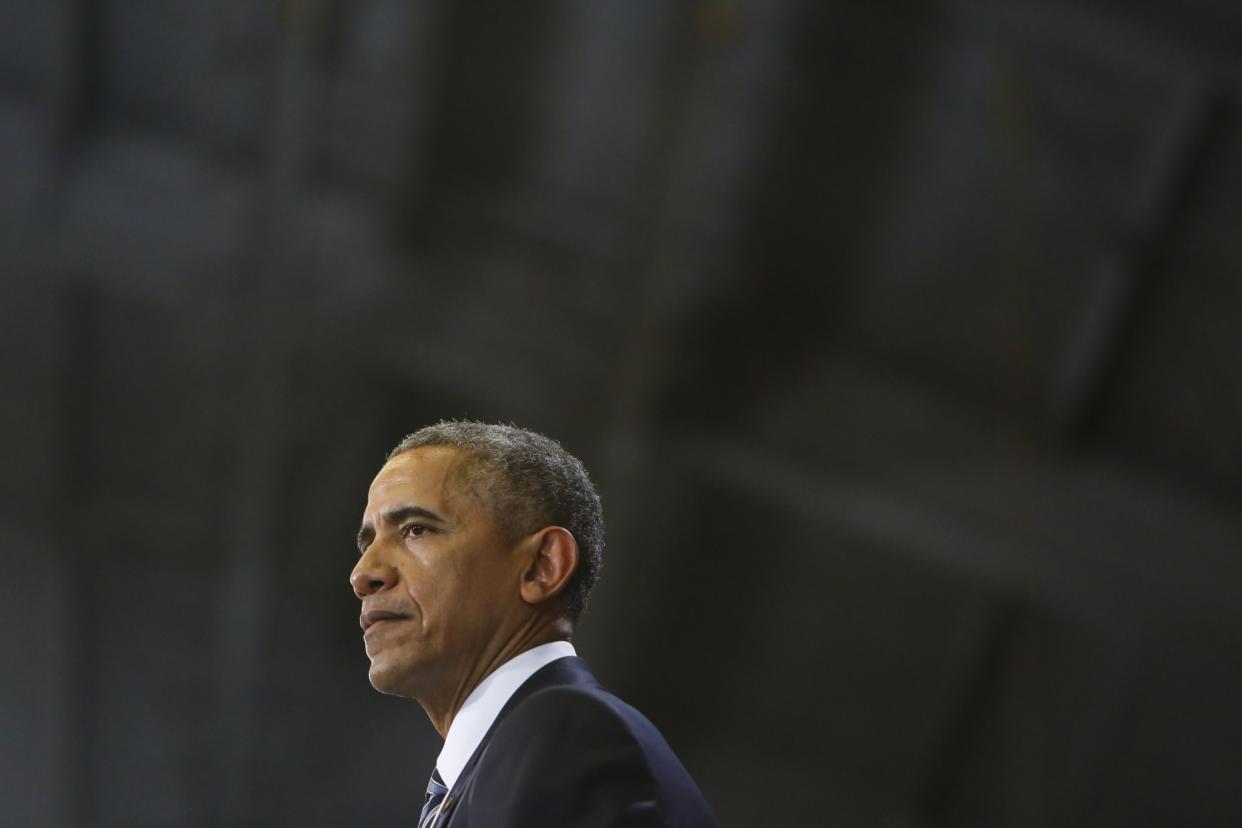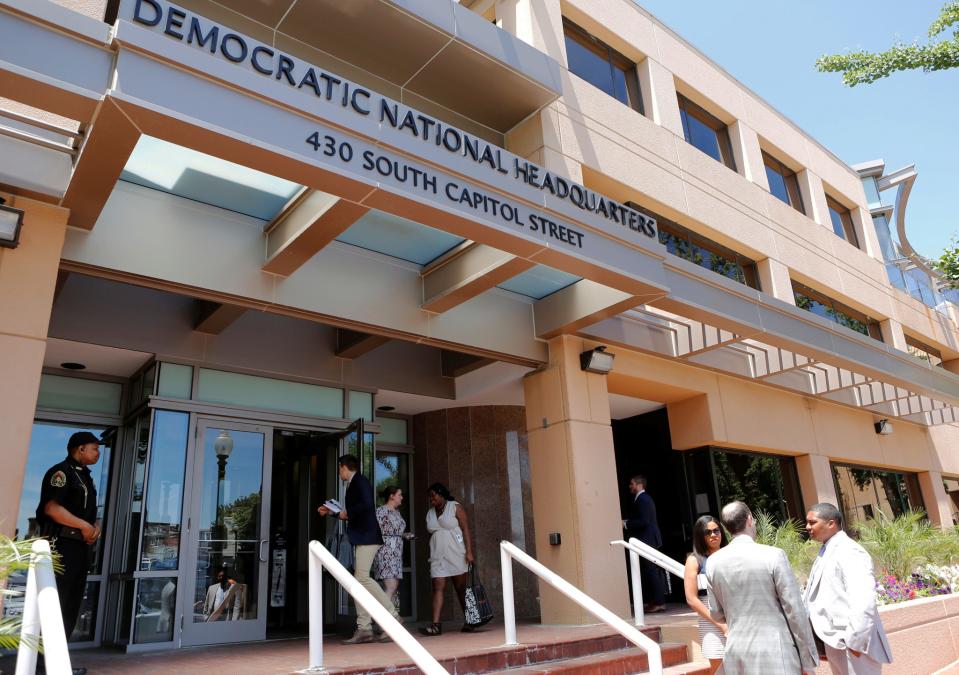Obama orders ‘full review’ of 2016 election hacking

President Obama has ordered the U.S. intelligence community to conduct a “full review” of the cyberattacks during the 2016 election and to prepare a report on the subject — including to Congress — before he leaves office, White House homeland security adviser Lisa Monaco said Thursday.
“We may have crossed into a new threshold,” Monaco said at a breakfast meeting with reporters, referring to the “malicious” election-related cyberattacks, which U.S. intelligence officials have said publicly they are “confident” were directed by the Russian government. “And it’s incumbent upon us to take a stock of that, to review, to conduct some after-action, to understand what this means and what has happened and to impart lessons learned.”
Deputy White House press secretary Eric Schultz later told reporters that Obama ordered the review earlier this week, describing it as a “deep dive” by U.S. intelligence agencies — working with the FBI and the State Department — into malicious cyberattacks that the U.S. intelligence community have already determined was directed at the “highest levels” of the Russian government. (Schultz notably said Thursday that the U.S. intelligence community has “high confidence” in that conclusion. The intelligence community had previously said it was “confident” about the Russian role.) He added that the review will also encompass cyberprobing and “scanning” of state election systems last summer, as well as look back at an earlier election-related cyberattack on the campaigns of Obama and Sen. John McCain in 2008, which U.S. officials attributed to the Chinese government.
Schultz emphasized that the review is “not an effort to challenge the outcome” of the 2016 presidential election. Still, he said, “it’s a huge priority. It’s a major priority for the president.”
Obama’s review could box in President-elect Donald Trump on an issue that has wide-ranging implications for U.S.-Russia relations. Already the matter has prompted calls for further investigations by the Congress — including proposals to create a national commission, patterned after the one formed after the 9/11 terror attacks — to conduct a full public review of the subject.
In an interview released this week, President-elect Trump dismissed the conclusions of the intelligence community on the Russian role in cyberattacks on the Democratic National Committee and other political organizations, saying at one point they could have been committed by “some guy in his home in New Jersey.”
“I don’t believe they interfered,” said Trump in an interview with Time, about the Russian role in meddling in the U.S. election. “That became a laughing point, not a talking point, a laughing point. … Why not get along with Russia?” Trump added. “And they can help us fight ISIS, which is both costly in lives and costly in money. And they’re effective and smart. It could be Russia. And it could be China. And it could be some guy in his home in New Jersey. I believe that it could have been Russia, and it could have been any one of many other people. Sources and even individuals.”
Despite calls by seven Democrats on the Senate Intelligence Committee for the Obama administration to declassify more information about what it knows about the cyberattacks, Monaco did not commit to a public release of the intelligence community’s review, saying officials had to be careful not to release information that would “disclose sources and methods.” But Schultz later told reporters, “We’re going to make public as much as we can.”
She also did not respond to a question about what response the U.S. government may have taken, or is still contemplating, in retaliation for what it believes to be the Russian attacks. In her opening comments to reporters, Monaco spoke generally about the cyberthreats facing the country, adding at one point that “we will act to protect our interests, as well as impose costs” on malicious cyber actors, including nation-states, that attack U.S. interests. She did not elaborate.

Monaco’s comments came as senior Senate Republicans have signaled they are prepared to order investigations into the Russian role in the election. McCain, chairman of the Armed Forces Committee, and Sen. Lindsey Graham, who chairs Senate subcommittees on foreign operations and terrorism, said this week they intend to launch their own probes of the issue and are planning a congressional trip to Eastern Europe soon to collect more information on the subject. Graham’s review will be a sweeping look at threatening Russian activities, including in Ukraine, but will include examining what role that country played in the election, an aide said this week. The Washington Post quoted McCain as saying he is “working closely” with Senate Intelligence Committee chair Sen. Richard Burr of North Carolina on the issue.
GOP acceptance of the Russian role was further reinforced Thursday when Rep. Devin Nunes, the chairman of the House Intelligence Committee, released a statement further pointing the finger at Moscow — and ignoring Trump’s dismissive comments. “Russia’s cyber-attacks are no surprise to the House Intelligence Committee, which has been closely monitoring Russia’s belligerence for years — as I’ve said many times, the Intelligent Committee has repeatedly failed to anticipate [Russian President Vladimir] Putin’s hostile actions.” Nunes blamed the Obama administration for its previous dedication to “resetting” relations with Russia and its failure to take more forceful action against the Kremlin in the past. “It appears, however, that after eight years the administration has suddenly awoken to the threat,” Nunes said in the statement.
U.S. intelligence officials have said they have strong evidence that Russian intelligence services penetrated the computers of the Democratic National Committee, the Democratic Congressional Campaign Committee, and other political organizations and political leaders, including John Podesta, Clinton’s campaign chairman, whose emails were hacked. They have said the later public release of those emails by WikiLeaks and other websites was consistent with methods the Russian intelligence services have used elsewhere in Eastern Europe and Ukraine.



